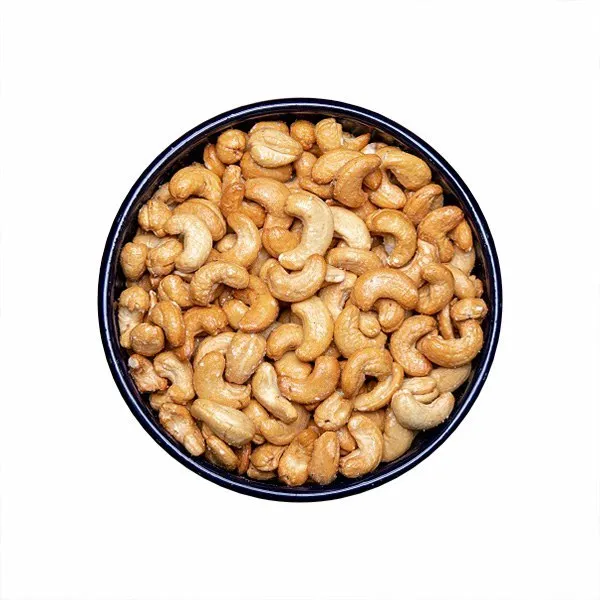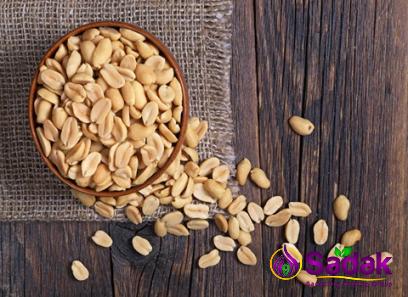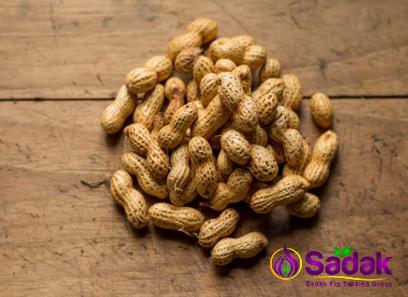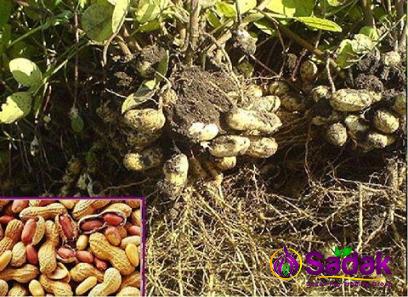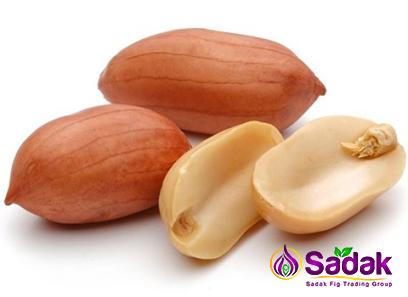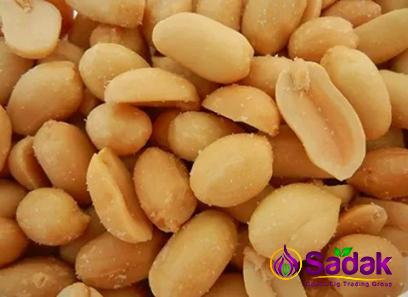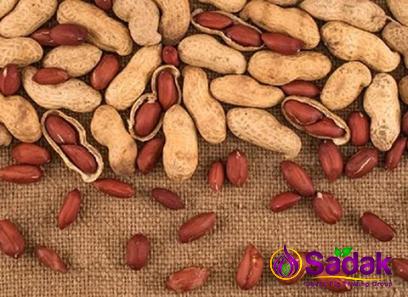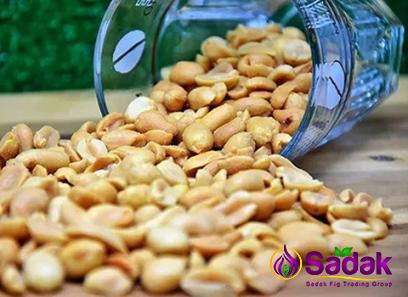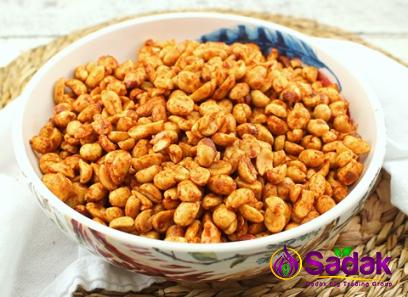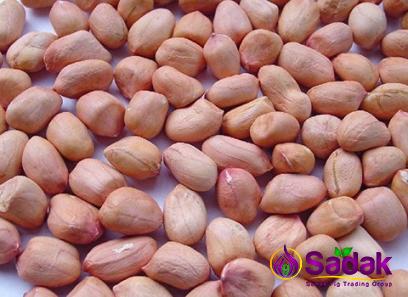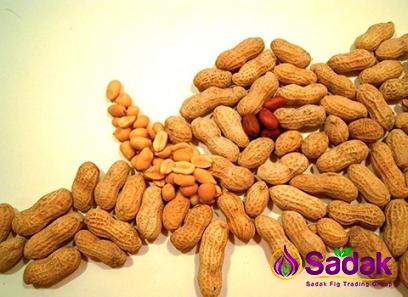Wholesale cashew pieces play a significant role in the global nut industry. Cashew pieces are derived from cashew nuts, which are often broken or damaged during processing. These smaller cashew pieces are highly versatile and find application across various industries, including food manufacturing, bakery, confectionery, and the snacks industry. This article delves into the wholesale cashew pieces market, covering its origins, production process, market trends, growth drivers, challenges, and future prospects.
1. Origins of Cashew Pieces:
Cashew trees, which are native to northeastern Brazil, bear cashew nuts. The cashew fruit consists of an outer layer (cashew apple) and an inner shell (cashew nut). After extensive processing, cashew nuts are removed from their shells, leading to broken or damaged nuts. These broken nuts are further processed into smaller cashew pieces, which are then sold in bulk to meet the demands of various industries.
2. Production Process:
The production of wholesale cashew pieces involves several stages. It begins with the collection of cashew apples, followed by careful extraction of cashew nuts from their shells. The shell removal process combines roasting and shelling methods. The broken cashew nuts are then segregated based on their sizes using sieves or machines. These broken cashew nuts subsequently go through cutting or chopping machinery to obtain standardized cashew pieces. The final steps involve sorting, packaging, and storing the cashew pieces to maintain their freshness and quality.
3. Market Trends:
The wholesale cashew pieces market has been witnessing substantial growth in recent years, driven by various factors:
a. Increasing Consumer Demand: The rising popularity of healthy snacking options and the incorporation of nuts in various culinary applications have significantly contributed to the increased demand for cashew pieces. Consumers are increasingly seeking wholesome and nutritious alternatives to traditional snacks, making cashew pieces a sought-after product.
b. Vegan and Plant-Based Diets: The growing adoption of vegan and plant-based diets has fueled the demand for cashew pieces. They serve as a protein-rich ingredient in vegan and vegetarian recipes, providing essential nutrients and a satisfying crunch.
c. Food Processing Industry: The food processing industry extensively uses cashew pieces as an ingredient in multiple products, including bakery items, chocolates, ice creams, and snack bars. The versatility of cashew pieces makes them an integral part of the food manufacturing sector, driving their market demand.
d. Export Market: Wholesale cashew pieces have a significant export market, with several countries importing them for their food industries. The growing international trade of cashew pieces has expanded market opportunities, leading to increased production and processing.
4. Growth Drivers:
Several factors contribute to the growth of the wholesale cashew pieces market:
a. Nutritional Properties: Cashew pieces are known for their nutritional value, providing essential minerals, vitamins, and healthy fats. The awareness of these health benefits has driven the demand for cashew products globally.
b. Changing Lifestyles and Dietary Preferences: As more individuals adopt healthier lifestyles and dietary preferences, the demand for premium quality, natural, and organic cashew pieces has surged.
c. Emerging Markets: Developing economies with growing disposable incomes and changing consumption patterns are witnessing increased demand for processed food products, including cashew pieces. This provides an opportunity for suppliers to tap into new markets and expand their reach.
5. Challenges:
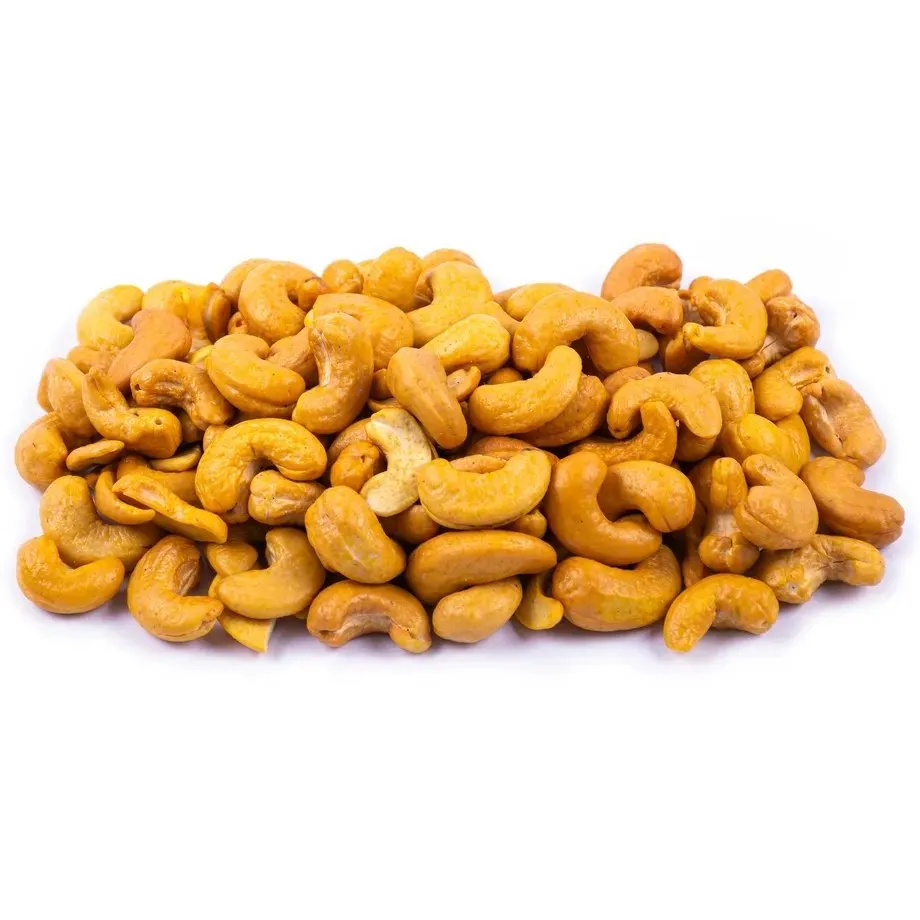
The wholesale cashew pieces industry also faces certain challenges that impact the market dynamics:
a. Price Volatility: Fluctuating prices of raw cashew nuts, influenced by factors such as weather conditions, market demand, and supply chain disruptions, can pose challenges for wholesalers. Sudden spikes in prices can affect profit margins and competitiveness.
b. Quality Control: Maintaining consistent quality standards throughout the production process is crucial for wholesalers. Ensuring that cashew pieces meet industry standards and are free from contaminants is essential to retain consumer trust and uphold product reputation.
c. Competition: The wholesale cashew pieces market is highly competitive, with multiple players vying for market share. To sustain growth, wholesalers need to offer competitive prices, maintain quality, and adopt efficient supply chain practices.
6. Future Prospects:
The wholesale cashew pieces market is poised for significant growth in the coming years. Several factors contribute to its positive outlook:
a. Health and Wellness Trends: The increasing focus on health and wellness, coupled with the demand for natural and plant-based ingredients, will continue to drive the market demand for cashew pieces.
b. Product Innovation: Continuous product innovation, such as flavored cashew pieces, blends, and value-added packaging, can create new market opportunities and attract a broader consumer base.
c. Sustainable Sourcing: The adoption of sustainable and ethical sourcing practices is gaining importance in the cashew industry. Wholesalers who prioritize environmental and social sustainability can gain a competitive advantage.
d. E-commerce and Direct-to-Consumer Platforms: The rise of e-commerce and the advent of direct-to-consumer platforms allow wholesalers to reach a broader customer base directly, bypassing traditional distribution channels.
Conclusion:
The wholesale cashew pieces market holds significant potential, driven by increasing consumer demand, evolving dietary preferences, and the versatile applications of cashew pieces across various industries. While challenges persist, wholesalers who prioritize quality control, competitive pricing, and product innovation can thrive in this dynamic market. With the projected growth of health-conscious consumers and the rise of emerging markets, the future looks bright for wholesale cashew pieces.Title: Wholesale Cashew Pieces: An Overview of the Industry and Market Trends
I. The Growing Demand for Cashew Pieces
Wholesale cashew pieces are witnessing a surge in demand due to various factors. Firstly, a shift towards healthier snacking options has led consumers to seek nutritious alternatives to traditional snacks. Cashew pieces, with their rich protein content and wholesome profile, have emerged as a popular choice among health-conscious individuals. Additionally, the rising popularity of vegan and plant-based diets has further boosted the demand for cashew pieces, as they provide an excellent source of plant protein. The versatility of cashew pieces also makes them an essential ingredient in the food processing industry, where they find use in products such as bakery items, confectionery, and snack bars.
II. Market Trends: Cashew Pieces in the Food Processing Industry
The food processing industry is one of the key contributors to the demand for wholesale cashew pieces. These small, broken cashew pieces are widely used as ingredients in a range of food products. Their rich flavor profile, combined with a satisfying crunch, makes them an excellent addition to bakery items, including cakes, cookies, and bread. Cashew pieces are also extensively used in the confectionery industry, where they can be found in chocolates, fudges, and nougats. Furthermore, the snack industry incorporates cashew pieces into products such as trail mixes, granola bars, and flavored nuts. As consumers continue to seek diverse and innovative food options, the demand for cashew pieces in the food processing industry is expected to grow.
III. Quality Control: Ensuring Consistency and Safety
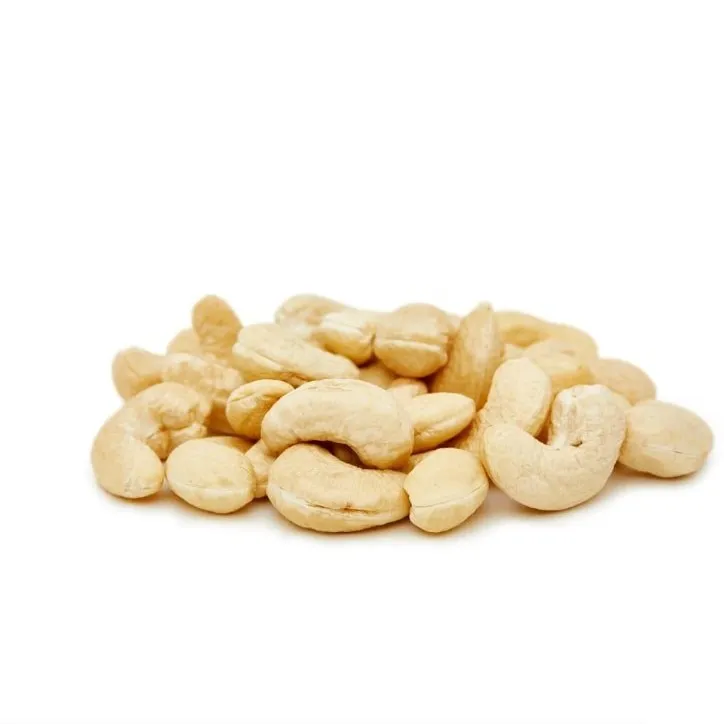
Maintaining consistent quality in wholesale cashew pieces is crucial to retain consumer trust and uphold the reputation of the product. Wholesalers need to prioritize quality control throughout the production process, ensuring that cashew pieces meet industry standards and are free from contaminants. This involves rigorous quality checks, including regular inspections of raw materials, adherence to food safety regulations, and maintaining a hygienic production environment. To meet the increasing demand for organic and natural products, wholesalers may also consider obtaining certifications that validate their commitment to sustainability and quality.
IV. Price Fluctuations: A Challenge for Wholesalers
Wholesale cashew pieces are subject to price volatility, primarily driven by factors such as weather conditions, market demand, and supply chain disruptions. Fluctuating prices in the cashew industry can present challenges for wholesalers, affecting profit margins and competitiveness. To navigate price fluctuations, wholesalers can diversify their sourcing strategies, maintain good relationships with suppliers, and engage in long-term contracts to secure consistent pricing. It’s also crucial for wholesalers to continually evaluate market trends, monitor crop forecasts, and adapt their pricing strategies accordingly.
V. Market Competitiveness: Positioning for Success
The wholesale cashew pieces market is highly competitive, with numerous players vying for market share. To succeed in this environment, wholesalers need to offer competitive pricing while maintaining the quality of their products. Building strong relationships with customers and suppliers is essential to establish a loyal customer base. Wholesalers can differentiate themselves by focusing on excellence in customer service, reliable and efficient supply chain management, and continuous product innovation. By staying ahead of market trends and consistently meeting customer demands, wholesalers can carve out a strong position in the market.
VI. Global Expansion and Export Opportunities
The wholesale cashew pieces market has seen significant growth in international trade. Several countries import cashew pieces for their food industries, creating opportunities for wholesalers to expand their reach and tap into new markets. This trend is driven by the increasing popularity of cashew pieces as a versatile ingredient and the demand for healthy and natural food products. To capitalize on the export market, wholesalers need to adapt to international requirements such as food safety regulations, labeling standards, and packaging specifications. Collaborating with local distributors or establishing direct distribution channels can enhance market penetration and improve their competitive advantage in global markets.
VII. Sustainability and Ethical Sourcing
Sustainability has become a key concern in the cashew industry. Wholesalers are increasingly expected to adopt sustainable sourcing practices, ensuring environmental and social responsibility throughout the supply chain. This includes promoting fair trade practices, supporting local communities in cashew-producing regions, and minimizing the environmental impact of production processes. Wholesalers who prioritize sustainability and ethical sourcing can cater to the growing consumer demand for products that align with their values. Moreover, sustainable practices can enhance brand reputation and strengthen relationships with socially conscious consumers.
VIII. Product Innovation: Catering to Changing Consumer Preferences
To stay competitive in the wholesale cashew piece market, wholesalers should continuously innovate and introduce new product offerings. This can include flavored cashew pieces, such as spiced, roasted, or coated varieties, which cater to diverse taste preferences. Wholesalers can also consider value-added packaging options, such as portioned packs, resealable pouches, or sustainable packaging alternatives, to attract consumers looking for convenience and eco-conscious choices. Additionally, collaboration with food manufacturers and chefs to develop new product applications and recipes can further expand the market potential of cashew pieces.
IX. E-commerce and Direct-to-Consumer Opportunities
The rise of e-commerce platforms and direct-to-consumer models has revolutionized the distribution landscape. Wholesalers can leverage these channels to reach a broader customer base directly, bypassing traditional distribution channels. Having an online presence enables wholesalers to establish their brand, showcase their product offerings, and engage directly with consumers. Furthermore, the direct-to-consumer approach allows wholesalers to gather valuable insights and feedback, enabling them to tailor their products and marketing strategies according to consumer preferences and market trends.
X. Future Outlook: Robust Growth and Potential
The wholesale cashew pieces market is projected to experience robust growth in the coming years. With increasing consumer awareness and demand for healthy and natural food products, cashew pieces are expected to remain an integral part of the snack and food processing industries. Emerging markets with growing disposable incomes and changing consumption patterns will provide new avenues for growth, presenting opportunities for wholesalers to expand their operations. By prioritizing product quality, embracing sustainability, and focusing on innovation and market trends, wholesalers can position themselves for success in the dynamic and evolving cashew pieces market.
Conclusion:
Wholesale cashew pieces are in high demand, driven by the growing popularity of healthy snacking options, the adoption of vegan and plant-based diets, and the versatile applications of cashew pieces in the food processing industry. Maintaining consistent quality, managing price fluctuations, and differentiating from competitors are crucial for wholesalers to succeed in this competitive market. Opportunities exist in global expansion, sustainability, product innovation, and the utilization of e-commerce and direct-to-consumer platforms. With strategic planning and a commitment to meeting consumer demands, wholesalers can thrive in the evolving wholesale cashew pieces industry.
